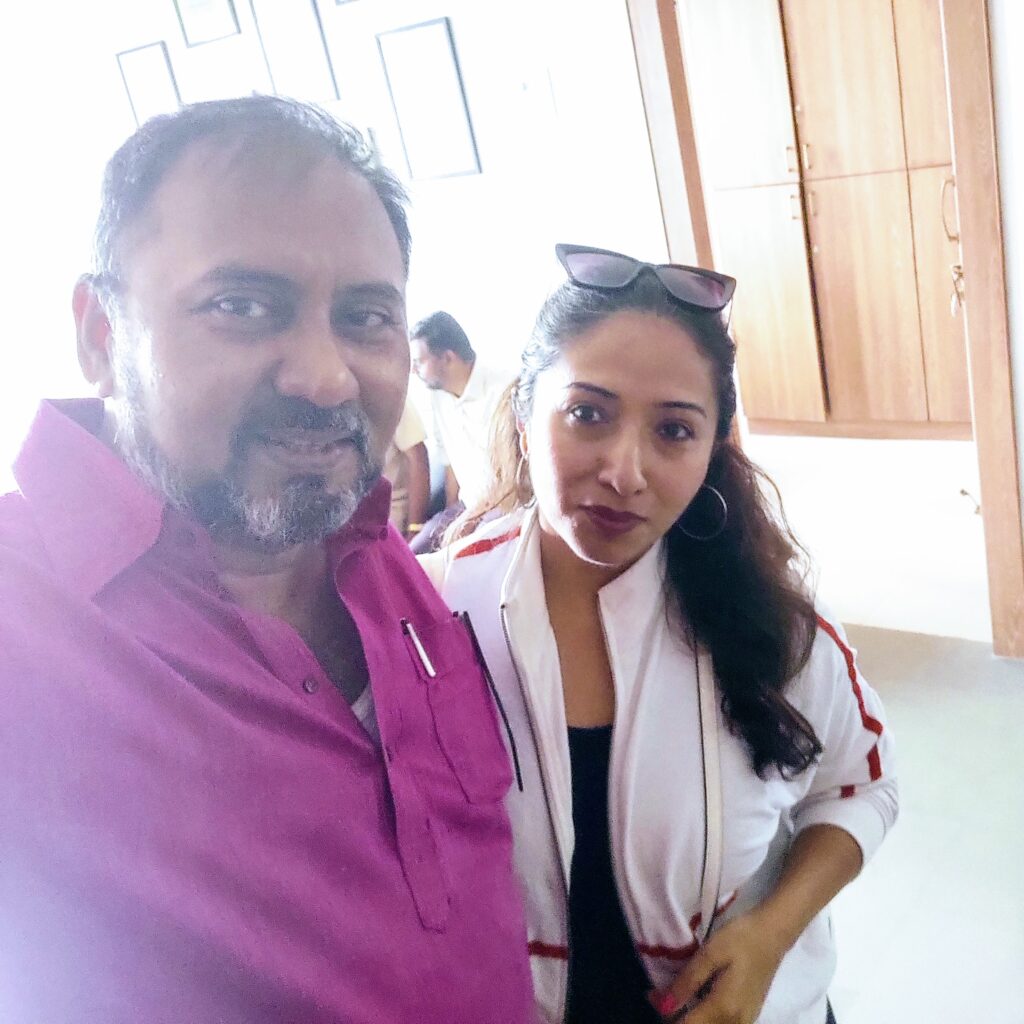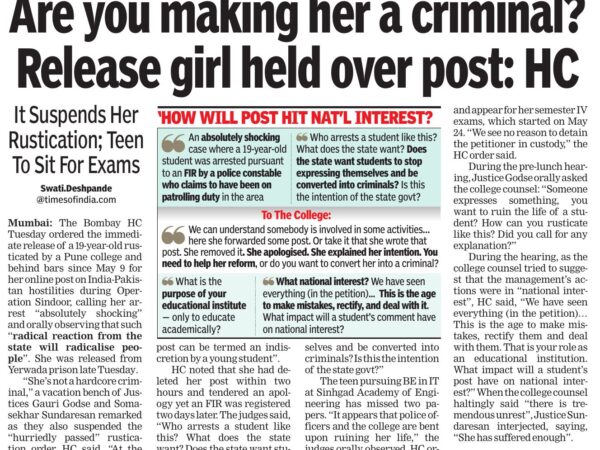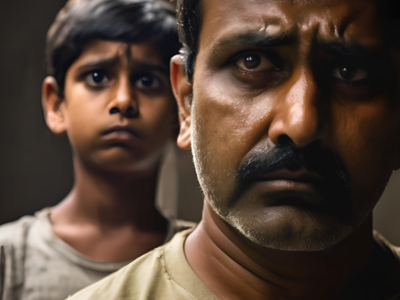The only time I’ve blanked out remembering my own wedding date, my address, and even, to my (and other people’s around me) utter surprise and consternation, my age and full name was in front of the court Nazir when finalising my divorce today. It was hilarious. And tragic. If our lawyer hadn’t come to my rescue by reading it out (my own name, age, and address), the Nazir would have smelled a rat where none existed.
I am embarrassed. As she swears me in, I suppress the urge to tell her I am an atheist and swearing on God means nothing. But, I observe ironically to no one in particular, that today, much of the stuff we are doing means nothing. Except as a formality.
Affidavits done, we wait outside Court No.2 for the Honourable Manisha Kale to call us and grant us the divorce which we’ve prayed for. We are 37th on the list. It seems like it’s going to be a long wait.
Our lawyer is collecting the counselling report from the court-appointed counsellor, a job as thankless as one can imagine (the counselling, not the collecting). The report is, of course, full of benign-sounding half-truths, most of which have been written to create plausible deniability for the process rather than as any genuine attempt at reconciliation. We notice that the counsellor sits in an office numbered 420. We (Tashuji and I, not the counsellor; that’d be really funny) both share a laugh. There is a stink of urine and shit that the breeze brings from a nearby clogged toilet. Useless stuff that the body has extracted all nutrition from and now does not need being ejected and excreted into a dark, dank place. Much like the relationship we are here to end.
The counsellor wants to see us again. That’s just procedure, the lawyer explains. She doesn’t want to change our minds. She doesn’t try. It’s too late anyway.
I ask Tashuji if she’d like a quick selfie to mark the end of something we both aren’t sure was good or bad in the long run. She smiles. And accedes. She knows me too well. Everything has to be recorded. Everything has to be written about. Everything has to be dissected. That’s just me. She also knows that most of my writing is about dissecting myself, and that if I didn’t, I’d need to see an expensive shrink. Writing, I have told her, is cheaper.
Of course, this is not my first time. And I catch myself explaining the process to Tashuji. What’s the point, anyway? It’ll happen at its own pace. I tell her how the justice system is fucked up and start telling her about the Mughal and colonial roots before I stop myself. What, I repeat to myself, is the point?
She changes the subject. She says she is missing Kym. So am I. We don’t know what else to say to each other. She asks me if I am going to be posting about this. Or have I already. I smile. She knows me. No, wait. I already said that. Anyway, she knows me. After all, we’ve pretended to want to know each other for the past 10 years. It must amount to something, right?
The crowd crushes us as we try to enter the court when our names are called by the clerk in an unintelligible throaty shout that makes sense only to those whose names are being announced. People are elbowing each other. I put my arm around her instinctively, but keep it an inch from touching her. She looks at me and smiles. It (the smile, not the touch) is one from the old days when things were different.
We are in front of the judge now pronouncing an end to a painful marriage. She asks the same questions. Names, ages, dates, addresses, and so on. I am there and not there. It’s like I am just an observer. The judge is confused about custody and child support. The lawyer explains. The judge shrugs. Seems she doesn’t understand how we are going to implement joint custody. I start to explain about the house on the 5th floor, her schedule, morning runs, her complete acceptance and understanding of the new order, but I stop myself. The judge doesn’t need to know. What, once again, is the point?
The judge asks us about Kym’s school. We both blurt out, almost in sync, that she is being homeschooled. Once again, I feel like explaining. Once again, I kill the urge. Because what is the point, right?
The judge shrugs again (I suddenly notice she’s doing a lot of shrugging; perhaps she’s thinking what I am, viz., What’s the point?). Then signs on some paper. Looks up, calls ‘Next’. It’s done. We exit and start descending the stairs. The lawyer shakes our hand. We’ve been good clients. He doesn’t get many like us, he says. The decree will take 20-odd days. We’ll each get 3 copies.
I ask Tashuji for my glasses and book, which, as usual, she is carrying in her bag. She is rifling through it for her bottle of water and comes up with my stuff. I thank her, and ask her, absentmindedly out of habit, ‘Did you have a good time?’ I bite my tongue quickly and cough, pretending I didn’t just say what I did. She didn’t hear me anyway. She wants to rush back to her work. Me to mine. I call Vikas to fetch the car. She wants to get dropped off at the opticians. She needs new glasses. I am sure this is symbolic of something. Some kind of analogy for our relationship. I can’t put my finger on it. There’s no point.
It’s all like a sequence from a bad art film. Or a Japanese novel. Or an everyday one from the countless family courts across the world. I don’t know about them. Or care. For me, this is my life. And I can only speak for myself.
But then, the world is full of so many problems. Why should this ridiculously small non-issue of mine make any difference? It doesn’t. I mentally replay that last scene from Casablanca. Yes, that’s what it amounts to. Not even a hill of beans. I know. I’m no good at being noble too. But there I am. And there’s my life. Insignificant, short, and boring.
Anyway, here’s our last photograph as husband & wife. It was a good ride. While it lasted.
Time to move on. Again.

P.S: Someone said long ago that divorce must be made easy while it is marriage that must be made more difficult. I couldn’t agree more. This society is a mess. And I can only hope the next generation has the guts, and the ability, to chuck it all and rebuild it afresh.



















